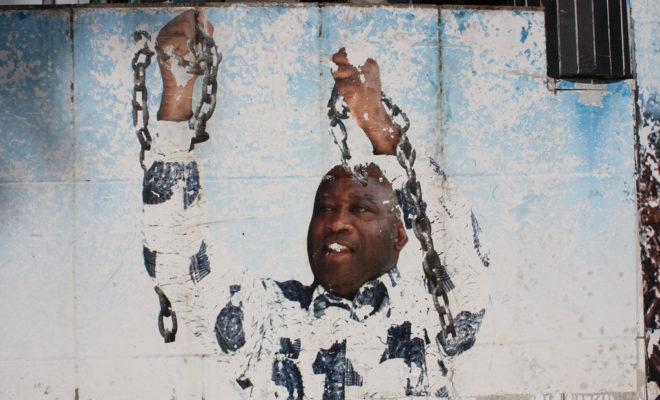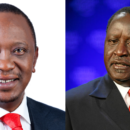Insiders insight: Is Côte d’Ivoire’s amnesty just shrewd politics?


A mural of former President Laurent Gbagbo in Cote d’Ivoire. Credit: Clara Sanchiz
To get the whole Insiders’ Newsletter, helping you keep track of and understand developments on the continent, click HERE to subscribe and get your first month FREE.
You can also now give a lucky someone a subscription as a gift. Find out more here.
This week’s free preview section is about Côte d’Ivoire’s surprising amnesty, but first here are all the sections non-subscribers are missing out on:
Peace, at last, in South Sudan?
South Sudan has another peace deal in place. And, no, this isn’t déjà vu.….
Congo’s political earthquake
After extending his term two years past its expiration and bringing his country to the brink of crisis, Congolese President Joseph Kabila surprised…
Mali’s presidential election: the latest developments
Mali’s presidential election will be decided by a run-off, after the official results of…
Zimbabwe after the elections: What now?
Tensions around the voting process and results escalated on last Wednesday, when…
Comoros: What does the YES referendum mean?
President Assoumani has said that the referendum passed, claiming that…
End matter: What else you should be reading
The best articles from around the web…
And now, enjoy this week’s free preview section:
Amnesty in Côte d’Ivoire: unifying the country or just shrewd politics?
On Côte d’Ivoire’s independence day, President Alassane Ouattara announced an immediate amnesty for 800 prisoners that were held for their participation in the 2010/2011 post-electoral crisis. Among those set free were several ex-cabinet members, military officers and Simone Gbagbo, the wife of former president Laurent Gbagbo, who remains in custody of the International Criminal Court in The Hague.
Officially the amnesty is meant as a gesture of reconciliation to heal the wounds of the 2010/2011 crisis, which saw Laurent Gbagbo refuse to accept an electoral defeat, resulting in the reignition of the country’s civil war.
Human rights organisations like Amnesty International have condemned the amnesty (a little ironically), because it sets free many people accused and convicted of war crimes and crimes against humanity. The amnesty will also likely end any efforts on part of the government, if there ever were any, to bring to justice human rights offenders among Ouattara’s own supporters.
Another sinister interpretation of the amnesty puts it into the context of Ivory Coast’s upcoming 2020 presidential election.
Ouattara may or may not run again, claiming that constitutional term limit introduced in 2016 can’t be applied retroactively. In 2010 and 2015, his victory was dependent on a coalition of various political parties, organised in the RHDP coalition. This coalition has shown signs of increasing internal conflict since Ouattara’s comments that he could stand again. To defuse these tensions, Ouattara has publicly invited his one of his most powerful allies and potential competitor, former president Henri Konan Bédié, to jointly choose the next generation of leader. So far, however, Bédié has insisted on choosing the next candidate unilaterally and has not ruled out standing himself.
Gbagbo’s old party, the FPI has largely boycotted the elections since 2010 and splintered to some degree. In its weakened state, it wouldn’t be a serious contender in 2020. That puts Ouattara, who has a comparatively small electoral base, at risk of losing out to one of his former allies.
Ouattara may hope that by releasing Simone Gbagbo and many of the party’s old cadres, the FPI can become a serious political force again, though one that wouldn’t actually threaten the incumbent’s electoral fortunes given the opposition’s lack of control over state resources and security forces. A strengthened FPI would limit the appeal of Ouattara’s current allies to protest-voters and maybe force the members of the RHDP to once again back Ouattara to defeat acommon enemy.
If this is really Ouattara’s thinking, and if it will work, is of course still up in the air. But with the amnesty he has certainly introduced a new variable into Côte d’Ivoire’s politics that will be interesting to follow.
- Some good general news articles on the matter come from France24, The Guardian, the BBC and Jeune Afrique
- A reaction by Amnesty International, criticising the move
Compiled by @PeterDoerrie
This week’s editorial team: @PeterDoerrie, @_andrew_green, @jamesjwan
To get the full newsletter every week, subscribe now: SUBSCRIBE NOW






